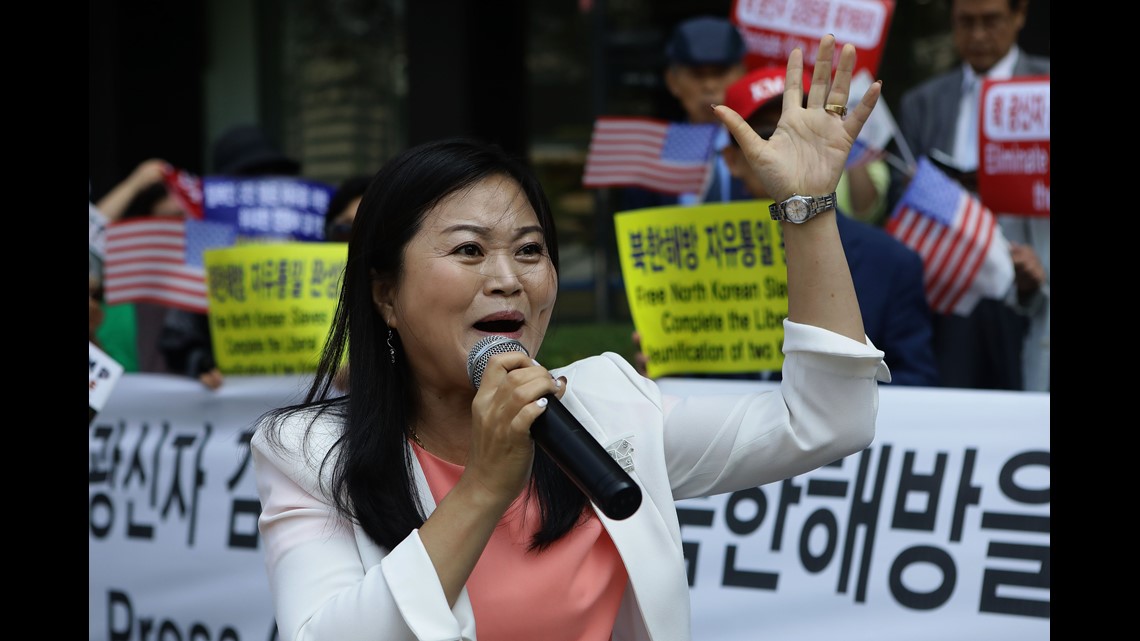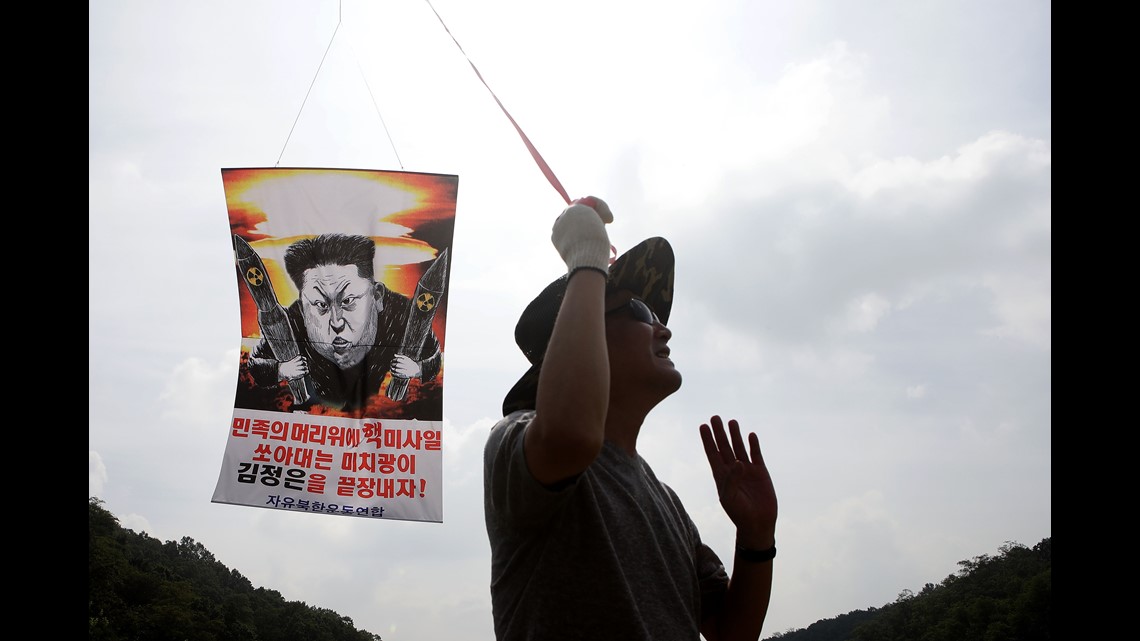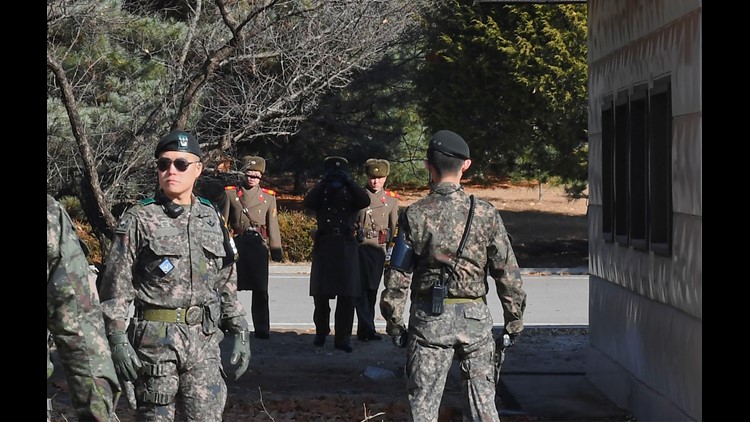The North Korean soldier shown on video dashing across the Demilitarized Zone and being shot five times — and surviving — was not that isolated country's typical defector. The overwhelming majority are women.
About 70% of the more than 31,000 defectors who have made it to South Korea since the end of the Korean War are women, according to the government’s Ministry of Unification. That figure has climbed in recent years, reaching about 80% from 2014-2016, and 85% this year.
The path to freedom for North Koreans usually begins by escaping across the long border with China, with the help of brokers who may lead them across Vietnam, Laos and Thailand before they finally make their way to South Korea.
Accurate information from North Korea is difficult to obtain to understand why women defect in higher numbers, but experts point to several factors.
One key reason is a strong demand for North Korean women in neighboring China for both the sex industry and as arranged brides in a country where men outnumber women by more than 33 million.
“Historically, the largest influence in female migration from North Korea to China has been sex trafficking and marriages,” said Sokeel Park, the Seoul-based director of research and strategy for Liberty in North Korea, an organization that helps rescue North Korean refugees hiding in China.
Park said North Korean women may have a better chance of staying under the radar and working informally in China in restaurants and factories. Many women working abroad send money back to their families in North Korea.


Women also have a significantly lower social status than men in North Korea, which allows them to remain further out of sight from authorities, said Heather Barr, a senior researcher in the women’s rights division of Human Rights Watch. North Korean women hold few positions in government or state-run businesses, and instead are the key movers of an informal market that sprang up after the near collapse of North Korea’s economy in the 1990s.
“This market economy has primarily been driven by married women who have had the space in their lives to engage in that type of work, because they're not required to show up at a government job like men,” she said.
Barr said this gives women greater access to the networks of brokers who can arrange passage to China, while it also leaves them at the mercy of a world that operates on bribes and corruption.
“It creates lots of vulnerabilities for women, including sexual harassment, coercion and assault,” she said, noting that reports of rape and domestic violence are common among defectors. In November, a United Nations human rights panel found that women are deprived of education and work opportunities, and often face sexual assault in the workplace.


Also motivating some women to escape has been access to information about the world outside North Korea. A black market of South Korean television shows and videos are smuggled in on DVDs and USB drives, and North Koreans living near China can sometimes pick up TV signals.
Many popular South Korean programs that make their way into North Korea are known as K-dramas — glamorous soap operas targeted to female audiences.
Park, with Liberty in North Korea, said some North Korean defectors explained they were motivated by the freedom of expression and fashion they saw on those shows, along with the higher status and respect enjoyed by the female characters.
“Their lifestyle was very carefree, freewheeling,” said one female North Korean defector in Seoul who spoke with USA TODAY in September. “If they want to do something, they can do something. if they want to travel somewhere, they travel. I could see that life is much freer than in North Korea,” said Yoon Ok, whose full name was withheld for her safety.
While the desire to escape North Korea doesn’t diminish, the number of defectors making their way to South Korea has been dropping significantly in the past few years.
In 2009, 2,900 refugees arrived. Last year, the figure was just 1,400, and this year is on pace for less than 1,200 arrivals. The downturn could be a result of increased enforcement and patrols in North Korea, especially China, experts said.
Human Rights Watch documented 41 North Koreans apprehended in China in July and August alone — compared with 51 people for the previous 12 months. China treats fleeing North Koreans not as refugees but as illegal migrants and often deports them back, where they likely will face brutal conditions and torture in prison camps.



